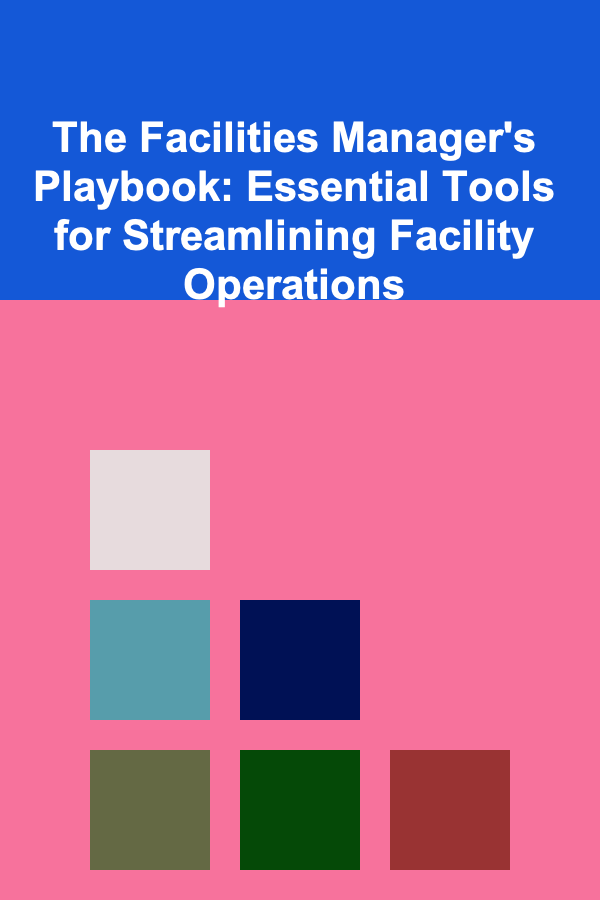
Becoming a Successful Business Consultant: Best Practices for Client Relationships
ebook include PDF & Audio bundle (Micro Guide)
$12.99$9.99
Limited Time Offer! Order within the next:

Business consulting is a profession that requires more than just technical knowledge or expertise in a particular industry. A consultant's success is heavily dependent on their ability to manage client relationships effectively. Building trust, providing value, and understanding the client's unique needs are all crucial elements that help establish long-term, productive consulting partnerships.
In this guide, we'll explore the best practices for managing client relationships and how consultants can navigate the challenges associated with consulting engagements. By adopting these strategies, you can enhance your ability to deliver value, foster positive client interactions, and build a strong reputation within your field.
Understand Your Client's Business
One of the first and most important steps in any consulting engagement is to thoroughly understand your client's business. The more you know about the client's industry, competitive landscape, and internal operations, the better equipped you will be to offer strategic insights that will drive their success.
1.1 Conduct In-Depth Research
Before even meeting with your client, invest time in researching their industry. This includes understanding the broader market trends, economic conditions, and key challenges affecting businesses in their sector. Look for areas where competitors are thriving and where others are struggling. Having this context allows you to frame your advice in a way that's both relevant and actionable.
- What are the key challenges faced by businesses in this industry?
- What are the regulatory and market trends affecting their operations?
- What are the best practices that other businesses in the industry have implemented?
Understanding the competitive landscape and broader market trends helps you gain a better sense of how your client fits into the larger ecosystem and where their opportunities and risks lie.
1.2 Ask Insightful Questions
Once you begin working with the client, take the time to ask insightful, open-ended questions. This will allow you to dive deeper into their specific goals, pain points, and operational hurdles. Questions such as:
- What are your short-term and long-term business goals?
- What are the biggest challenges you face in achieving these goals?
- What key performance indicators (KPIs) are most important to you?
These questions will not only help you understand the nuances of their business but also help in building a rapport, as clients appreciate consultants who show genuine interest in their operations.
Build Strong Communication Channels
Effective communication is foundational to building trust and ensuring alignment between the consultant and the client. Establishing clear, open lines of communication from the start is essential to a successful consulting relationship.
2.1 Set Expectations Early On
At the beginning of an engagement, it's important to define clear expectations regarding deliverables, timelines, and the overall scope of the project. This ensures that both parties are aligned and prevents misunderstandings later on. This includes discussing:
- What is the overall project timeline?
- What are the key milestones and deadlines?
- What are the expected deliverables, and what does success look like?
Setting these parameters early on also helps in identifying potential challenges or obstacles that may arise during the course of the engagement.
2.2 Maintain Transparent Communication
Transparency is key in any consulting engagement. Regularly update your clients on the progress of your work, and don't hesitate to share any concerns or challenges that arise. Being upfront about issues allows both you and your client to address them before they become significant problems.
Keep your communication concise, relevant, and consistent. Regular check-ins and progress reports help in building confidence and show that you are actively involved in solving their problems. It also helps ensure that expectations remain realistic and that the client's needs are being met.
- How frequently will you provide updates?
- What format will these updates take (email, meeting, etc.)?
- What are the key points to address in each update?
2.3 Adapt to Your Client's Communication Style
Every client has their preferred method of communication, whether it's emails, phone calls, or face-to-face meetings. As a consultant, it's important to adapt to the client's style rather than forcing your own. Some clients may appreciate detailed reports, while others prefer concise summaries or even phone discussions. Understanding their preferences ensures that you're able to communicate more effectively and avoid miscommunication.
Establish Trust and Credibility
Trust is a cornerstone of any successful consulting relationship. Clients hire consultants because they want to believe in your ability to provide value and solve problems. Building credibility takes time, but by consistently delivering high-quality work and maintaining professional integrity, you can establish a strong foundation of trust.
3.1 Deliver High-Quality Work
One of the most effective ways to build trust is to consistently deliver results. Ensure that your recommendations are based on solid data and research, and provide actionable insights that will make a real difference to your client's business. The more value you can provide, the more likely your client will trust your expertise.
- Be data-driven: Base your recommendations on thorough research, industry benchmarks, and case studies from similar companies.
- Show measurable results: Demonstrating how your work has helped clients meet or exceed their KPIs can cement your credibility.
3.2 Be Honest and Transparent
Sometimes, clients may not want to hear difficult truths, but honesty is essential for long-term success. If you identify issues that need to be addressed, or if you believe the client's approach is flawed, don't hesitate to bring it to their attention. Clients will respect you more for offering an honest assessment of the situation, even if it means telling them something they don't want to hear.
- Offer constructive feedback: Frame your advice in a way that's helpful and forward-thinking.
- Be transparent about limitations: If there's an area where your expertise is limited, don't be afraid to acknowledge it and either collaborate with others or refer them to someone who can offer the necessary expertise.
3.3 Demonstrate Your Expertise
Demonstrating your expertise doesn't just mean offering advice---it also means being willing to share your knowledge and educate your clients. When you educate your clients on industry trends, best practices, or new technologies, you show that you're not just providing a service; you're becoming a valuable resource to their business.
- Share case studies: Providing relevant case studies can demonstrate how your solutions have worked for others and reassure your client of your ability to deliver.
- Host workshops or training: Offering to upskill your client's team is a way to demonstrate your knowledge while giving back to the organization.
Foster Long-Term Relationships
The goal of business consulting is not just to solve a single problem---it's to build long-term relationships with your clients. Repeat business, referrals, and a strong reputation all come from sustaining these relationships over time.
4.1 Be a Partner, Not Just a Vendor
Clients are more likely to continue working with consultants who act as partners rather than simply service providers. Actively involve yourself in their business goals and demonstrate a vested interest in their success. Be proactive in offering solutions and insights that extend beyond the current project.
- Stay engaged: Don't let the relationship fizzle out once the initial engagement is over. Check in periodically to see how they're doing and if they need ongoing support.
- Be responsive: Respond quickly to any follow-up questions or concerns that arise after the project is complete.
4.2 Provide Ongoing Value
Clients appreciate consultants who continue to offer value after the initial project ends. This could mean providing regular check-ins, sending industry updates, or offering free consultations on related issues. It demonstrates that you're invested in their success and not just in completing a project for the sake of billing.
4.3 Ask for Feedback
Feedback is essential for continuous improvement, both as a consultant and in the relationship-building process. Regularly ask your clients for feedback on your performance and how you can improve. This shows that you care about their experience and are committed to improving your services.
- Use surveys or informal conversations to gather insights into your performance.
- Act on feedback: Show your clients that their opinions matter by making adjustments based on the feedback you receive.
Handle Conflict Professionally
Conflicts may arise during consulting engagements, especially when recommendations are met with resistance or if there are discrepancies regarding project scope. How you handle conflict can make or break your relationship with a client.
5.1 Stay Calm and Objective
When conflicts arise, it's essential to remain calm, professional, and objective. Take the time to listen to your client's concerns and respond thoughtfully. Avoid getting defensive or emotional, and focus on finding a solution that works for both parties.
5.2 Seek Win-Win Solutions
Whenever possible, aim for solutions that benefit both you and your client. Whether it's revising the scope of a project or negotiating timelines, always keep the client's needs in mind and work collaboratively to find a solution that addresses their concerns while still allowing you to meet your professional obligations.
Conclusion
Becoming a successful business consultant is not only about applying your technical knowledge---it's about building and maintaining strong, trusting relationships with your clients. By understanding their needs, communicating effectively, delivering high-quality work, and fostering long-term partnerships, you can position yourself as a valuable consultant and trusted advisor.
The best consultants are those who focus on delivering real, tangible value to their clients. By following these best practices for client relationship management, you can build a career that's both successful and rewarding.

How to Decorate Your Windows to Create a Holiday Wonderland
Read More
How to Set Up a Checklist for Restocking After Stockouts
Read More
How to Soundproof an Attic for Better Acoustic Control
Read More
How To Understand Cold Spray 3D Printing
Read More
How to Use Apps and Technology to Track Your Earnings While Riding: An Actionable Guide
Read More
The Facilities Manager's Playbook: Essential Tools for Streamlining Facility Operations
Read MoreOther Products

How to Decorate Your Windows to Create a Holiday Wonderland
Read More
How to Set Up a Checklist for Restocking After Stockouts
Read More
How to Soundproof an Attic for Better Acoustic Control
Read More
How To Understand Cold Spray 3D Printing
Read More
How to Use Apps and Technology to Track Your Earnings While Riding: An Actionable Guide
Read More